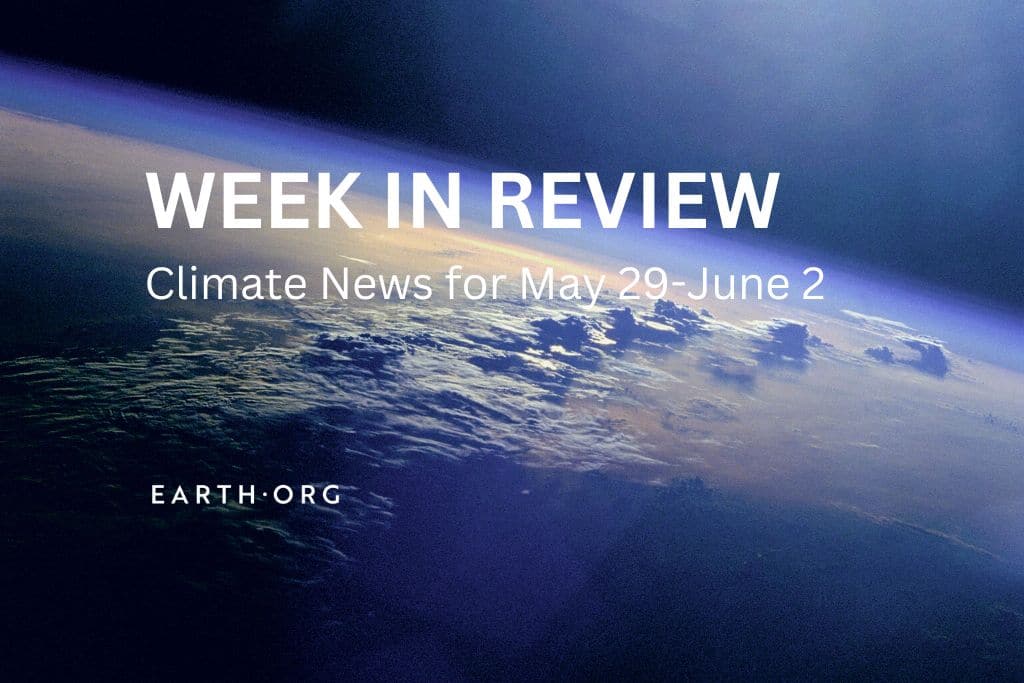This weekly round-up brings you key climate news from the past seven days, including a worrisome study on planetary boundaries and the future of our planet, an IEA report on the state of clean energy investments, and France’s new ban on short-haul flights.
—
1. Clean Energy Investments to Exceed Fossil Fuels For First Time, IEA Says
The rapid expansion of clean energy technology manufacturing is set to increase green energy production and capacity, bringing the world on the right path to cover demand levels in the Net-Zero Emissions (NZE) Scenario, the International Energy Agency (IEA) said last week. More specifically, investments in clean technologies – such as renewable energy, electric vehicles, and low-emissions fuels – are forecast to reach $1.7 trillion this year. In comparison, $1 trillion will go into fossil fuel projects.
According to a new analysis of manufacturing of clean technology – including solar photovoltaic (PV), batteries, wind, heat pumps, and electrolysers, a strong rebound in economic growth following the Covid-19 pandemic as well as effective policies including the US Inflation Reduction Act passed last year are among the main drivers of the increased global spending on clean energy. In a December report, the IEA also suggested that the war in Ukraine and rising fossil fuel prices have triggered an “unprecedented momentum” in the renewable sector, speeding up the development of renewable energy including solar and wind.
Read more here.
2. France’s ‘Symbolic’ Ban on Domestic Short-Haul Flights Is Not Enough to Tackle Climate Change, Critics Say
The French government has signed into law a new ban on short-haul, domestic flights for journeys that can be completed by train in a bid to fight climate change.
The ban affects routes linking Paris-Orly airport to the Western cities of Bordeaux and Nantes, and Lyon in east-central France. The three air routes have been discontinued since there is a high-speed rail alternative that links the destinations in less than two-and-a-half hours. For the ban to apply, there must also be enough trains running in the early and late hours of the day to enable travellers to spend at least eight hours at their destination.
President Emmanuel Macron’s own environmental panel had initially suggested banning flights wherever a train journey of four hours or less was available.
France’s transport minister Clement Beaune, who heralded the decree last week, called the move “an essential step” and a “strong symbol in the policy of reducing greenhouse gas emissions.”
“As we fight relentlessly to decarbonise our lifestyles, how can we justify the use of the plane between the big cities which benefit from regular, fast and efficient connections by train,” he said.
Read more here.
3. Most Planetary Boundaries Beyond ‘Safe and Just Limit’, Scientists Say
Human activities have pushed seven out of eight planetary boundaries beyond their “safe and just limit” into risk zones that indicate a huge threat to our planet’s and human health, a group of the world’s most renowned scientists has found.
In their study, published in the scientific journal Nature on Wednesday, experts looked into so-called planetary boundaries, key processes essential for sustaining life on Earth. Each one has a limit as to how much pressure it can take from humanity before it is pushed over a tipping point in which changes can no longer be reversed.
The research, which was carried out by the independent international scientific assessment initiative Earth Commission, found that the “safe and just” limit for global temperature rise, 1C, had already been surpassed. Scientists behind the study argued that a rise of 1.5C, the threshold agreed upon by world leaders under the Paris Agreement, could negatively impact 200 million people and expose more than half a billion people to long-term sea level rise.
Aside from that, scientists found that the level of intact ecosystems needed for the planet to thrive – anywhere between 50-60% – had also already been breached. Similarly, the use of nitrogen oxide emissions, a leading cause of water pollution, needed to be halved in order to stop the growth of harmful plant and algal blooms on surface water.
Read more here.
4. South Africa Considers Burning Heavy Fuel Oil to Ease Record Load-Shedding Levels
South Africa is negotiating a 5-year power purchase agreements programme to ease one of the country’s worst blackout crises to date, Electricity Minister Kgosientsho Ramokgopa announced on Wednesday.
Of the 2,000 MW needed to alleviate blackouts, at least 1,200 MW will come from natural gas provided by Turkish company Karpowership under an existing agreement. For the remaining power, the country will rely on heavy fuel oil from the company’s other plants, an anonymous source told Bloomberg.
The country’s plan to burn heavy fuel oil, a much dirtier fuel than gas, is expected to generate backlash from energy transitioners and climate activists. Last week, Energy Minister Gwede Mantashe told the Johannesburg-based Sunday Times that the government is prepared for legal fights with environmental groups over its decision.
“Environmentalists veto every development they don’t like,” he said. “People can take us to court as many times as they can, we will continue with gas and petroleum exploration.”
Read more here.

















